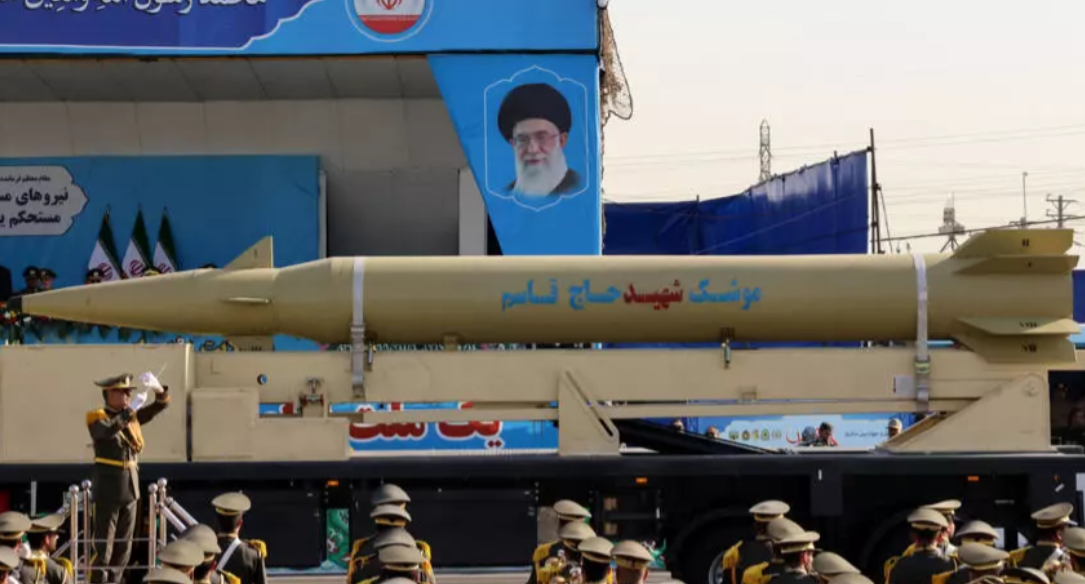The United States has issued a warning indicating that Iran is on the verge of launching a ballistic missile attack against Israel. This alert comes in the wake of Israel’s ground offensive in Lebanon, targeting the Iran-backed militia Hezbollah, particularly after the death of Hezbollah’s leader, Hassan Nasrallah, in an Israeli airstrike last week.
A senior White House official, who requested anonymity, shared that the US has received intelligence suggesting an imminent missile attack. The official stated, “We are actively supporting defensive preparations to defend Israel against this attack.”
In response to the warning, the Israeli military asserted that they had not yet detected any signs of an aerial threat from Iran. Rear Admiral Daniel Hagari, a military spokesman, commented, “At this moment, we do not detect any aerial threat launched from Iran.” He emphasized that Israel remains on high alert in coordination with the United States and is closely monitoring developments in Iran.
Hagari further noted that Israel’s air defense systems are fully operational, and combat aircraft are actively patrolling the skies. “We are at peak readiness on both offense and defense,” he stated. “We have dealt with this type of threat before, and we will deal with it now as well.”
The US official cautioned that a direct military attack from Iran on Israel would have severe repercussions for Iran, underlining the seriousness of the situation.
In April, the United States and its Western allies intervened to defend Israel against a combined missile and drone attack from Iran. This offensive was launched in retaliation for an Israeli strike on the Iranian consulate in Damascus. Following the recent killing of Hezbollah leader Hassan Nasrallah, Iran has issued statements indicating that this act will lead to Israel’s “destruction.” However, Tehran clarified on Monday that it would not deploy troops to confront Israel directly.
Israeli Prime Minister Benjamin Netanyahu responded to these threats with a strong warning to the Iranian people, declaring that “nowhere in the Middle East is beyond Israel’s reach.” He further suggested that a future “when Iran is finally free” would arrive sooner than expected, signaling Israel’s determination to counter Iranian influence in the region.
An attack by Iran on Israel raises significant concerns about escalating regional conflicts, which both the United States and other global powers are keen to avoid. The U.S. has expressed cautious support for Israel’s actions to dismantle Hezbollah’s capabilities to launch attacks from the north, despite President Joe Biden’s calls for a ceasefire.
U.S. Secretary of State Antony Blinken emphasized Washington’s commitment to Israel’s defense during a meeting with Moroccan counterpart Nasser Bourita, stating that the U.S. is “tracking events in the Middle East very closely.”
On Monday, the U.S. announced plans to bolster its military presence in the region by deploying “a few thousand” additional troops, as well as increasing the number of fighter jets stationed there.
Defense Secretary Lloyd Austin conveyed U.S. support to Israeli Defense Minister Yoav Gallant for efforts aimed at “dismantling attack infrastructure” linked to Hezbollah along the Lebanon-Israel border. Tensions have been high since Hezbollah initiated low-intensity strikes on Israeli forces shortly after Hamas, an Iranian ally, launched an unprecedented attack on Israel on October 7. This has led to a significant Israeli military response in the Gaza Strip. Meanwhile, cross-border skirmishes between Israel and Hezbollah continued during the ongoing conflict, with Israel announcing ground raids targeting Hezbollah positions in southern Lebanon.

